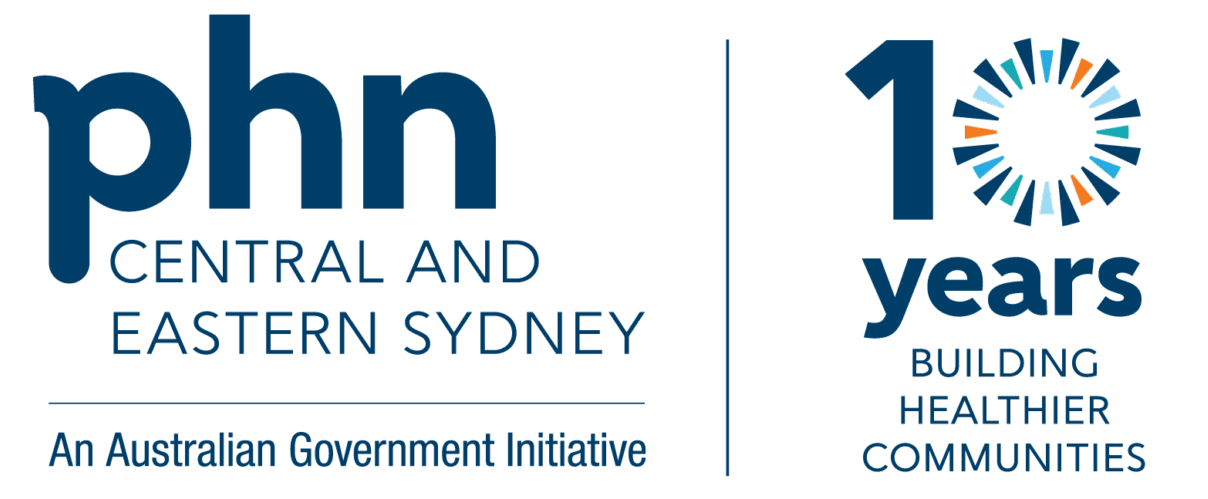Update: Bondi Beach Response
The PSS program is currently accepting referrals for individuals impacted by the Bondi Beach attack.
For urgent or crisis assistance at any time, please call NSW Mental Health Line on 1800 011 511 (24/27), or dial 000 for emergencies.
Psychological Support Services (PSS)
Psychological Support Services (PSS) provides free access to short-term psychological therapy either face-to-face or via telehealth. PSS is for people experiencing mild to moderate mental health concerns who live in the Central and Eastern Sydney region and are experiencing financial hardship or low income, and who may not be able to access support through Medicare subsidised psychological services.
Under this program, CESPHN commissions Project 54 which reduces barriers to accessing psychological support for Aboriginal and Torres Strait Islander peoples by providing outreached-based, culturally appropriate, and sensitive support in locations across the region including La Perouse, Glebe and Sutherland LGA.
Eligibility
Psychological Support Services is for people who:
- Live within the Central and Eastern Sydney region. Find your local PHN.
- Have a diagnosable mild to moderate mental health concern.
- May benefit from short-term treatment.
- Are unable to access other services including the Better Access Initiative (Medicare subsidised psychological services) due to financial hardship or low income (Individual income below $67,000 or family income below $140,000).
- For Project 54, the service is for Aboriginal and Torres Strait Islander people who live within the CESPHN region.
Psychological Support Services has skilled clinicians who can support individuals who fall within the following groups:
- Children (0-12 years who have not yet graduated from primary school) with, or who are at risk of developing a mild to moderate mental, emotional, or behavioural disorder.
- Young people (12-25 years).
- Adult (low income).
- Individuals who identify as Lesbian, Gay, Bisexual, Transgender, Intersex, Queer/Questioning (LGBTIQA+).
- Individuals experiencing perinatal depression and their partners.
- Individuals who identify as Aboriginal and or Torres Strait Islander.
- Individuals who identify as part of a Multicultural Community.
- Individuals who have attempted, or who are at risk of suicide, or self-harm. (See SPS below – GP referral only).
- Individuals with mild intellectual disability who may benefit from short-term psychological intervention when co-occurring mental health concerns are diagnosed.
- Individuals impacted by natural disasters or traumatic events.
In order to improve access to the program for underserviced or hard to reach groups, Non-Medical Practitioner (NMP) referrals are also accepted. NMP referrals allow Mental Health Practitioners (MHP) to carry out up to 10 sessions prior to obtaining a MHTP.
A Non-Medical Practitioner can include:
- School Welfare Staff
- Youth Mental Health Services
- headspace Clinical Staff
- Child and Maternal Health
- Perinatal Mental Health
- TWBSS
- Tertiary Welfare Staff
- Multicultural Community Health Services
- Non-Governmental Organisation
- Mental Health Clinician
- Community or Neighbourhood Centres
- Aboriginal Community Controlled Health Services (ACCHS)
- House Parents of Kirinari Hostel (Sylvania)
- Directors of Early Childhood Services
- Aboriginal Health and Wellbeing Worker
Suicide Prevention Service (SPS)
CESPHN provides priority access to the PSS Suicide Prevention Service (SPS) initiative for individuals who are considered at increased risk following a suicide attempt, self-harm, or who have heightened suicidal ideation and who are best supported in the primary health care setting.
The primary objective of the Mental Health Practitioner (MHP) within the SPS will be to focus on suicide prevention, prevention of future risk taking, identifying early warning signs and triggers. Please note this is a time limited short-term service and is not appropriate to commence focused psychological therapy.
This service is for individuals 18 years and over, who have attempted suicide or who have heightened suicidal ideation and are being supported in the primary health care setting, therefore no longer considered at acute risk.
SPS Eligibility
- Individuals 18 years and over.
- Individuals must not be acute or at immediate risk of suicide or self-harm.
- Must be referred by a Medical Professional only.
- Meet general PSS criteria (see above).
- Individuals who are on general PSS and have been stepped up into SPS appropriately.
SPS is not designed to support people who are at acute and immediate risk of suicide or self-harm. Individuals at acute risk should be referred immediately to your relevant State or Territory Government acute mental health team (or equivalent). A GP Mental Health Treatment Plan (MHTP) forms part of accessing this service. This can be added to the online Service referral form and Healthlink referral form (Healthlink ID: CESPHNMH) templates. Both referral form pathways are compliant with the billing requirements for a GP MHTP.
Referral Forms
Please do not open the Best Practice or Medical Director file before uploading into your clinical software.
Non-Medical Practitioners can refer individuals to PSS prior to the development of a GP Mental Health Treatment Plan. Limited additional sessions may be available based on clinical need after initial sessions have been completed. However, the individual will need to see their GP for a Mental Health Treatment Plan before additional sessions are approved.
Non-Medical Practitioners can refer to PSS using the online referral form.
Referrals will not be accepted via direct email or Fax due to security and privacy concerns.
For the online referral webpage, click here
To download the instruction manual to import Best Practice (BP) forms click here.
To download the instruction manual to import Medical Director (MD) forms, click here.
Links to Download
PSS Initial Referral Best Practice
PSS Initial Referral Medical Director
PSS Review Referral Best Practice
PSS Review Referral Medical Director
Service Providers
| Service Provider | Lilly Pilly Counselling (LPC) | Australian Primary Mental Health Alliance (APMHA) Healthcare Ltd. |
| Website | Click here | Click here |
| admin@lillypillycounselling.com.au | admin@apmhahealthcare.com.au |
To become a PSS provider, please contact the Service Providers above.
For any referral queries, contact CESPHN Mental Health team:
Ph. – 1300 170 554.
Email – mentalhealth@cesphn.com.au
Click here to access the registered PSS providers on the CESPHN Service Directory.



